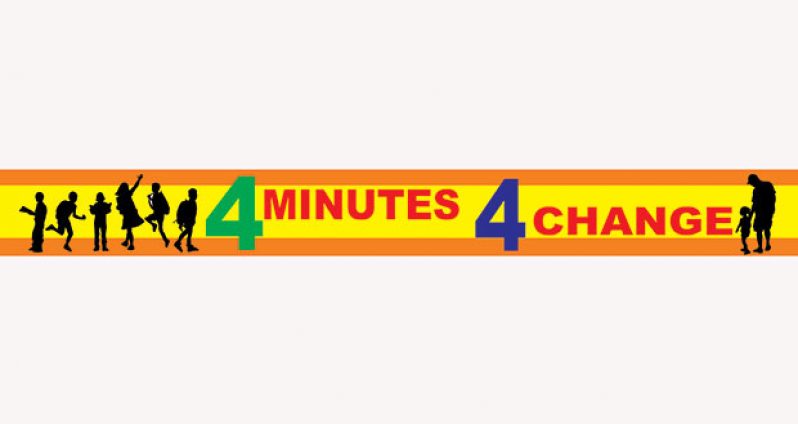DID you know that children who live in environments where domestic violence is prevalent are being systematically abused? These settings are not suitable for the healthy development of children.If you know of a child living in these circumstances or of a woman or man living with domestic violence, contact the childcare and protection agency on 227 0797 or encourage the victim to seek help, through ‘Help and Shelter’ or the Gender Affairs Unit of the Ministry of Social Protection.
No man has a right to put his hand on a woman, and vice versa: when this happens it is a clear indication that there are serious problems in the relationship. However some mothers may find they are financially dependent on the perpetrator and feel obligated to live with domestic violence just to have a regular income in their household and some men stay to “save face,” since it is not easy for a man to tell anyone that he is being abused.
But living in these conditions can have a significant impact on children.
Children who live with domestic violence are fearful and anxious; they are always on guard because they never know when the next incident will occur or what might trigger it, therefore they never feel safe.
At school these children may seem withdrawn or on the contrary they might ‘act up’ seeking attention. They usually have short attention spans, which usually results in poor academic performances.
Children who grow with domestic violence can experience a mixture of emotions such as guilt, shame, fear, anxiety, depression, sadness and even anger at the victim, for not being able to prevent the abuse. Bedwetting has also been associated with children living in these circumstances.
Although children who witness domestic violence may appear fine on the outside, on the inside they are experiencing pain. They carry their burden unbeknown to their Parents or onlookers. Domestic violence is usually treated like a family secret that is never discussed but the victim, the perpetrator and the children, who witness it, all know that it is wrong and should never happen.
Child abuse is not just about what is done to a child physically: psychological damage caused by this type of abuse can be equally as detrimental to a child’s sense of well-being and their outcome in life.
Here are some examples of how domestic violence can affect the developing child.
Domestic violence can affect the development of a child’s personality – Children tend to grow with very little self-worth or self-esteem, they may view themselves as powerless rather than powerful individuals.
Domestic violence can cause emotional and psychological trauma to children – Creating problems in their relationships when they are adults.
Domestic violence can deny children of a healthy home life – in turn children may conclude that the best way to resolve conflict is through intimidation and physical violence.
Domestic violence can lead to juvenile delinquency and drug or alcohol problems.
Now that you are aware of the long-term effects that domestic violence can have on children, spread the word, tell your neighbour, tell your friends and colleagues, share this information with whoever will listen. We must be aware that the children who get damaged today will be tomorrows’ adults, carrying around some serious issues, unless there is intervention. That’s why child protection is so important and that’s why, regardless of how small, we all have a part to play in helping our nation’s children.
You can write to us at childcaregy@gmail.com
A MESSAGE FROM THE CHILDCARE AND PROTECTION AGENCY, MINISTRY OF SOCIAL PROTECTION



.jpg)











